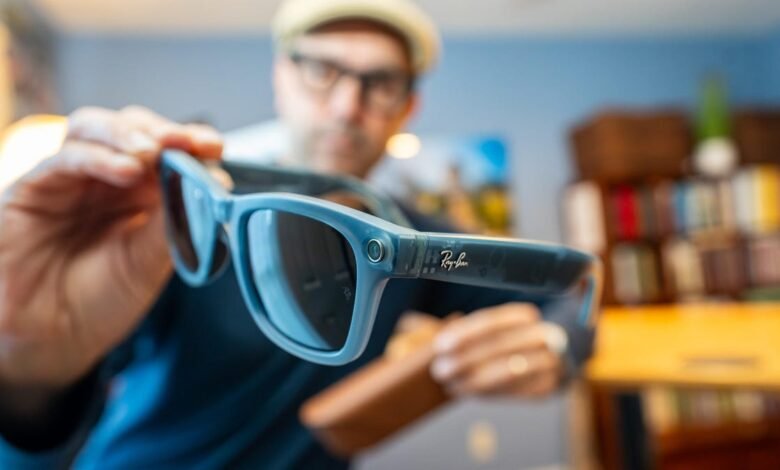Meta Connect 2025: Ray-Ban Smart Glasses, Hypernova & More Revealed

▼ Summary
– Meta Connect 2025 will take place on September 17-18 and feature announcements about new hardware and software developments, including smart glasses and AI.
– The event will showcase Hypernova smart glasses with a heads-up display and a neural wristband accessory called Ceres for control via muscle signals.
– Third-generation Meta Ray-Ban glasses are expected with design refreshes, improved battery life, camera quality, and possible landscape video recording.
– Meta will likely introduce a software development kit to open its platform to third-party developers for building apps in navigation, fitness, and other areas.
– The event can be watched via livestream on Meta’s website, Facebook Live, or in virtual reality through Horizon Worlds, with keynotes on September 17 and 18.
The tech world turns its attention to Meta Connect 2025, scheduled for September 17th and 18th, where the company is poised to unveil its next wave of AI-integrated hardware and immersive software. This year’s event promises significant updates to wearable technology, including new smart glasses and expanded AI capabilities, building on the momentum from last year’s multimodal and translation features.
One of the most anticipated reveals centers on Meta’s multi-faceted smart glasses strategy, headlined by the rumored Hypernova model, which may launch under the retail name Meta Celeste. These glasses are expected to incorporate a waveguide display embedded directly into the lens, offering a heads-up interface ideal for navigation, notifications, and app interactions. A companion neural wristband, codenamed Ceres, is also likely to debut, designed to interpret subtle muscle signals for intuitive control of the glasses.
Alongside new models, the popular Ray-Ban frames are rumored to receive a third-generation update with improved battery performance and camera capabilities. Users are hoping for the ability to record landscape video, moving beyond the vertical-only recording seen in earlier versions. Two distinct styles, sunglasses and optical, are expected to cater to different daily wear preferences.
Another intriguing possibility is the introduction of “super sensing” technology, enabling continuous environmental scanning to help users locate misplaced items or recall forgotten names and faces. Perhaps most impactful, however, is the anticipated release of a software development kit (SDK) that would open the platform to third-party developers for the first time. This move could spur innovation in navigation, fitness, translation, and enterprise applications, making Meta’s smart glasses considerably more versatile.
While virtual reality may take a secondary role this year, with no new Quest headset expected, the event may feature the debut of the ASUS ROG Tarius, the first third-party device running on Horizon OS. This premium headset is rumored to include eye and face tracking alongside high-resolution displays.
Horizon Worlds is also set to receive generative AI tools, allowing creators to build unique environments using simple text prompts. Interactive characters powered by Llama models will enhance social experiences with personalized conversations and dynamic behaviors.
Meta AI is expected to be a central theme throughout the conference, both as a consumer-facing product and as the backbone of the company’s long-term strategy. Updates may include character-driven bots tailored for non-English speakers and further details on Meta’s pursuit of artificial superintelligence. Mark Zuckerberg may also address recent shifts in the company’s open-source commitments and Llama development timeline.
The main keynote begins on Wednesday, September 17th at 5:00 PM PT / 8:00 PM ET, followed by a developer keynote on Thursday morning. Livestreams will be available on Meta’s website, Facebook Live, and within Horizon Worlds for Quest users.
(Source: ZDNET)





